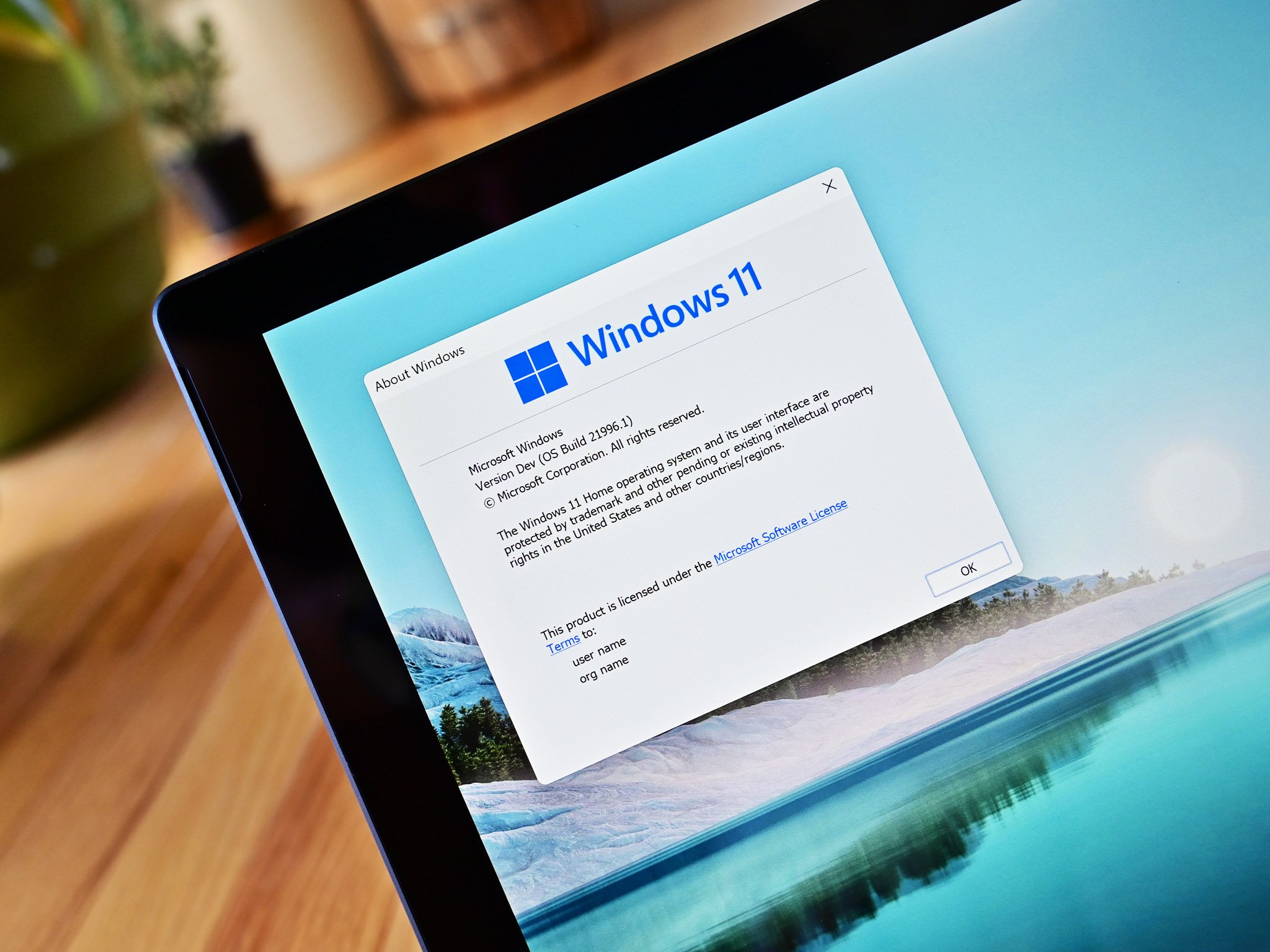Windows 11 benchmarks show potential promise for big.Little CPUs
More Windows 11 benchmarks show improved performance, but we shouldn't count any chickens yet.

All the latest news, reviews, and guides for Windows and Xbox diehards.
You are now subscribed
Your newsletter sign-up was successful
What you need to know
- New benchmarks tested on hardware running Windows 11 appear to show a boost in performance.
- One theory is that Windows 11 has been optimized for big.Little architecture that's seen in Intel Lakefield processors.
- As with all Windows 11 benchmarks, it's important to take any results with a grain of salt.
With Windows 11 leaking online, people around the web are rushing to see how it compares to Windows 10. A report from HotHardware suggests that the new operating system from Microsoft delivers a performance boost compared to its predecessor. HotHardware's theory is that Microsoft optimized Windows 11 to work with the big.Little architecture that's seen in Intel Lakefield chips and that will likely be in Alder Lake CPUs.
Before we dive any further into benchmarks and theories that attempt to explain them, it's important to put these figures into context. Windows 11 is not officially released, so any version that someone tests is incomplete. It also won't have drivers optimized the operating system. This affects benchmarks, especially 3DMark.
Additionally, benchmark reports don't always provide a complete picture. There may be other differences between machines than the operating system or other factors that affect performance. We recently saw a story about Windows 11 benchmarks prove to be inaccurate.
With that context, we'll take a closer look at the results by HotHardware. The site tested a Galaxy Book S with an Intel Core i7 processor running the Windows 10 May 2021 Update and Windows 11 (21996.1).
Geekbench 5
Geekbench 5.0 (CPU) (Higher is better)
| Device | Operating system | Single core | Multi core |
|---|---|---|---|
| Galaxy Book S | Windows 11 (21996.1) | 895 | 1,801 |
| Galaxy Book S | Windows 10 21H1 | 875 | 1,707 |
BrowserBench Speedometer 2
Web Application benchmark (Higher is better)
| Device | Operating system | Score |
|---|---|---|
| Galaxy Book S | Windows 11 (21996.1) | 84.6 |
| Galaxy Book S | Windows 10 21H1 | 76.3 |
Cinebench R23
3D Rendering (Higher is better)
All the latest news, reviews, and guides for Windows and Xbox diehards.
| Device | Operating system | Single core | Multi core |
|---|---|---|---|
| Galaxy Book S | Windows 11 (21996.1) | 766 | 1,842 |
| Galaxy Book S | Windows 10 21H1 | 708 | 1,810 |
Futuremark PCMark 10
Applications (Higher is better)
| Device | Operating system | Essentials | Productivity | PCMark 10 | Digital Content Creation |
|---|---|---|---|---|---|
| Galaxy Book S | Windows 11 (21996.1) | 5,975 | 3,533 | 2,490 | 1,974 |
| Galaxy Book S | Windows 10 21H1 | 5,755 | 3,222 | 2,424 | 2,022 |
UL 3DMark Night Raid
Graphics (Higher is better)
| Device | Operating system | Score |
|---|---|---|
| Galaxy Book S | Windows 11 (21996.1) | 4,286 |
| Galaxy Book S | Windows 10 21H1 | 4,266 |
.
The benchmarks suggest a performance boost when moving from Windows 10 to Windows 11 on the Galaxy Book S. HotHardware theorizes that this is due to optimization of the big.Little architecture inside of the laptop. Until Microsoft announces Windows 11 and explains how it differs from its predecessor, we can't say anything for sure.
Luckily, we don't have to wait long to hear official word from Microsoft. The company will hold an event on June 24, 2021 to showcase Windows 11.

Sean Endicott is a news writer and apps editor for Windows Central with 11+ years of experience. A Nottingham Trent journalism graduate, Sean has covered the industry’s arc from the Lumia era to the launch of Windows 11 and generative AI. Having started at Thrifter, he uses his expertise in price tracking to help readers find genuine hardware value.
Beyond tech news, Sean is a UK sports media pioneer. In 2017, he became one of the first to stream via smartphone and is an expert in AP Capture systems. A tech-forward coach, he was named 2024 BAFA Youth Coach of the Year. He is focused on using technology—from AI to Clipchamp—to gain a practical edge.
